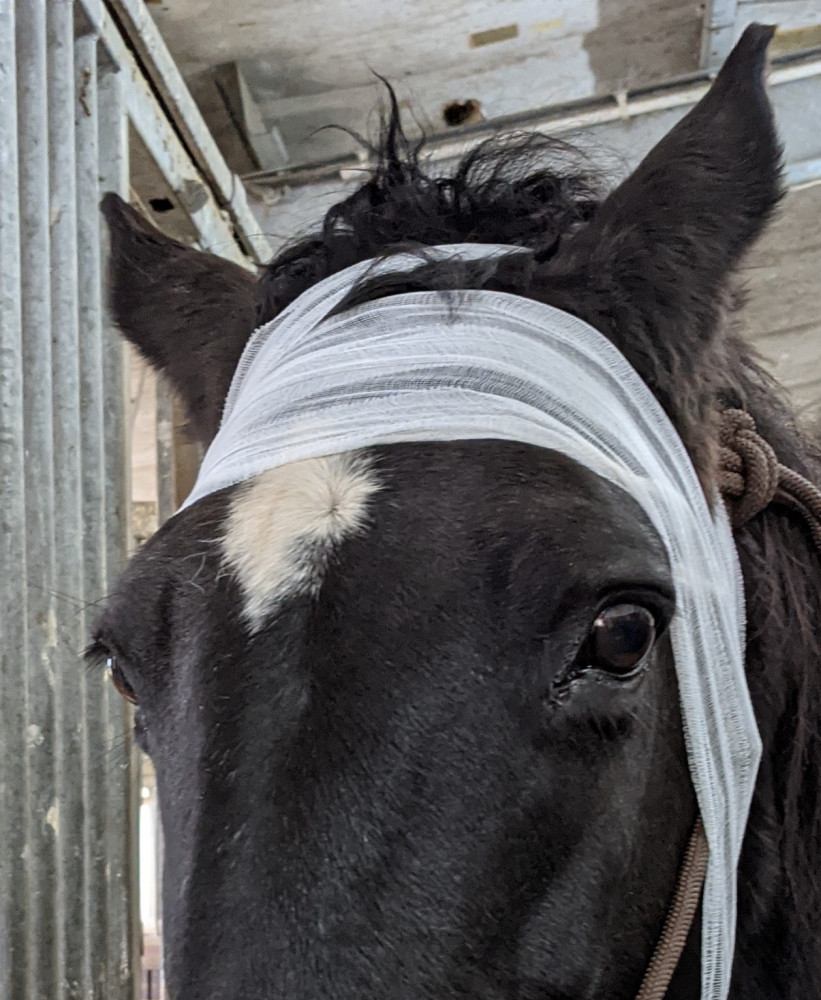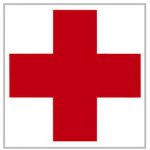Horses with a Lack of Zinc
 Zinc is one of the important trace elements in the horses body.
Zinc is one of the important trace elements in the horses body.
These elements are responsible for 90 % of the enzymatic processes in the organism and due to this take part at the metabolism. A possible lack inhibits the normal processes – and this can cause acute deficiency symptoms. Referring to this zinc has an important function for the whole system of the body.
Enzymes are produced in the organism and guarantee the metabolism of the horse. For the production of the enzymes trace elements are needed which enter the body through the fodder of the horse. Trace elements can only be adapted by the organism on condition that the digestive tract operates well and acepty them. Due to this the microorganism in this digestive tract must not be disturbed. Consequently an infect or a disease of the digestive tract can cause a deficiency of any trace element.
Zinc and its function in the organism
Like any other trace element zinc takes part at many processes in the organism. One of the most important function is the participation at the creation of hormones. These hormones control and guarantee the production and groth of the cells. According to this a horse really needs these hormons if it has a wound or if it grows. Moreover zinc participates at the detoxification of the body. If a horse is poisoned vets advise to feed zinc so that the toxic substances leave the organism. Additionally zinc influences the immune defense. This defense is responsible for the protection against any bacteria, virus and other dangerous fungis. Finally zinc is irreplaceable for the production of vitamin A. This vitamin effects the growth of any mucous membranes which have an important role for the coat, fertility and sight of the horse. In the end zinc leaves the organism through the urine or sweat.
Origin for a deficiency of zinc
This trace element has many different funtions and due to this a deficiency can have many possible origins. In general one can classify into four main categories:
1.) If the fodder only is based on cereals this can cause a lack of zinc. Cereals contain phytic acids which links with the zinc. Due to this the trace element is not able to fulfil its functions in the organism anymore.
2.) A too high supply of proteins causes a deficiency of zinc. The liver gets affected and needs to handle all the proteins. Due to this the liver itself must get detoxicated and for this process the organism needs a lot of zinc. A horse eats too many proteins if he only stands on the pasture or if horse owners only feed mash and bran.
3.) Horses which train often offer a lack of zinc. The origin for this fact simply is stress. If horses are in a stressful situation their body produces natural cortisone which inhibits the functions of zinc. Moreover the horse sweats so that a lot of zinc becomes seperated from of the body.
4.) Finally there is a natural origin for the deficiency which is hard to prevent. It is based on the fact that many soils get farmed a lot so that they only offer a low quantity of trace elements. Fodder which comes from these soils do not have enough of natural zinc.
How can I notice a lack on zinc? Symptoms
Indeed it is difficult to notice a deficiency of zinc. The symptoms are unspecific and mostly not noticed. Some horses only become tired and offer an inefficiency and a lack of appetite. Another symptom is the deterioration of the coat and hooves. This can cause brittle hooves as well as a dim and dull coat. In some cases the horse additionally extremely has dandruffs. According to its important function for the imune defence a lack of zinc also causes a high frequency of colds or other diseases. The healing process of wounds is slowly and there are problems with the growth.
Only a blood screening can clarify if these symptoms lead to a lack of zinc. You need to contact a vet and he will make and evaluate the blood screening.
How can I prevent a lack of zinc?
Many horses provide a lack of zinc. You can prevent this if you are aware that you need to feed zinc in certain situations. A possible period for a high need of zinc is the changing of the coat, a pregnancy, a healing processe or a tournament.
In normal situations you just need to make sure that your horse gets enough of zinc. The daily ration is about 300-550 g per horse and day. If you and your vet decided to feed additional zinc substitutes it is recommended to use organic compounds (zinc sulphate, zinc oxide). These organic substances can easily be adapted by the horses body so that they do not inhibit the function of other trace elements.
Surf tips:
—All statements without guarantee—


4 Comments
Comments are closed.